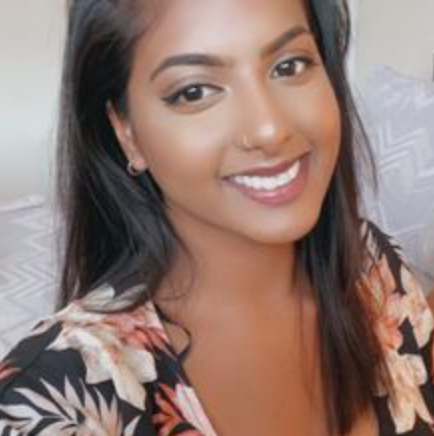
Kristen Keher is the Founder of Data Moves Me, a company that offers courses, live training, career development aswell as taking part in public speaking. She brings passion to everything data and wishes to emit her positive energy onto others, helping them build their careers and finding what drives them in the world of Data!
We at AI Time Journal would like to thank Kristen Kehrer from Data Moves Me for taking part in the Data Science Interview Series and sharing several insights such as
- How she got into Data Science
- The skills she uses along with her recommendations on improvement
- The challenges she faces everyday
- Book and Courses recommendation
“I took a job with a data scientist title, rebranded myself, and the rest was history.”
Nisha: How did you first get into Data Science?
Kristen: I had a very standard/straight path to data science, even though data science wasn’t a term when I started my BS in math in 2001. Years later I went for an MS in Applied Statistics and right after got a job working for a company in the utility industry doing time series analysis and forecasting. I noticed that broader advanced analytics paid more than what I was making, so I hopped over to analytics and built a career. Then came the boom of popularity around “data science”. I took a job with a data scientist title, rebranded myself, and the rest was history.
Nisha: What are the key skills that you use every day as a data scientist, and how did you develop them?
Kristen: SQL was essential, once I started working for myself it has been less so. I learned SQL on the job, I was very fortunate. I had learned R in grad school, but not enough R to utilize it. So I took courses to get up to speed with the Tidyverse and take my programming further. I also learned Python, because lots of job requirements ask for it. In my first “Data Scientist” job I spent most of my days in Python. I started my journey into Python with a Coursera course “Python for Everybody”, highly recommend. The skill that is harder to develop but also essential is communication and presentation skills, we’re not taught these skills in STEM degree coursework, so I picked it up through years of trial and error on the job.
“Most challenges arise as a result of a lack of communication and boundary setting”
Nisha: What are the top challenges you currently face as a professional data scientist, and how do you go about tackling them?
Kristen: Most challenges arise as a result of a lack of communication and boundary setting. I can google how to do the technical stuff, but working with people is more nuanced. I’m not being a curmudgeon if the test my stakeholders want to run won’t attain a large enough sample size to give us insight. Building trust, implementing processes to ensure rigor, etc. along with advocating for adopting those processes can be a real challenge.
Nisha: How important is the domain knowledge of the business/industry you’re in as a data scientist, and how did you acquire it?
Kristen: I’ve successfully worked in the Utility, healthcare, and e-commerce industries. Although domain knowledge is imperative to the job, I’ve found that it’s very acquirable. My bosses have shared resources for reading, I’ve gone to conferences, and attended lots of internal meetings. Don’t underestimate the power of “When you have a chance, could you tell me about your experience in X industry?”. Being comfortable asking a million questions could be your best asset.
Nisha: Books: which books have helped you the most in your journey and why?
Kristen: I think “Weapons of Math Destruction” by Cathy O’Neil is one of the most important to understand data limitations, challenges and ethics. It’s not technical, very readable, but brings to life some very important concepts for anyone who is thinking of getting into data.
Nisha: Courses: what courses/programs have you taken that have significantly contributed to advancing your career in data science?
Krisen: Business Science University creates incredible courses for learning R. From the very beginning to advanced app development and plenty of practical machine learning.
Nisha: What advice would you give to someone who wants to get into data science today?
Kristen: The sector has changed since I entered. If I had to do it all over again today I might study computer science in all honesty. But if you asked me again in 5 years and we’ve moved to a more ‘no code/low code’ way of doing data science then I’d probably want to keep my MS in Statistics. The field is tremendously broad, so there is no “one size fits all” piece of advice. If I was talking to a CS grad I’d ask them to consider pursuing data engineering and get in through that route (while taking supplemental courses in ML, visualization, etc.). If someone was a math or stats grad I’d suggest they take a course to learn SQL and start as a data analyst. There are, of course, many other perfectly alternative paths on the road to data science.
Nisha: What inspires you about working in Data Science?
Kristen: I’m constantly inspired, there is always something new to learn. I’m also in love with the data community on LinkedIn. Years ago it was a little lonely to be in data, I didn’t socialize with a ton of people in the field. However, now I can meet new data lovers daily and continuously learn on social media, that’s been life changing experience.
Nisha: Tag one or two people in your industry who you would like to see answer these questions.
Kristen:
- Kate Strachnyi
- Jordan Goldmeier
